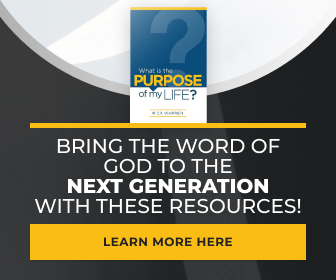Leadership
Five Areas of Weakness to Share With Your Church

It’s not easy to be vulnerable—especially as a pastor. I know that firsthand, but I also understand it’s critical to your church’s ministry that you be open and honest about your weaknesses.
Many times, pastors fear that if they’re vulnerable with their congregations, people will use their weaknesses against them. But God does just the opposite. He often uses your vulnerability to bring you closer to your congregation.
I believe there are five key weaknesses we should be particularly open about with our congregations:
Our failures.
“I want to do what is good, but I don’t. I don’t want to do what is wrong, but I do it anyway” (Romans 7:19 NLT). Have you ever said something like that to your congregation? If not, you should! They need to hear that you’re one of them. They struggle with sin. You do, too. When you share your weaknesses, it gives them the courage to be honest with people in their lives as well.
Whenever I preach on marriage, I always share about the early struggles Kay and I had in our marriage. I’d be divorced today if it weren’t for a good Christian counselor. Paying for counseling was the best money I’ve ever spent.
Sharing that story with my congregation helps them far more than if I got up and said we’ve always had a perfect marriage.
Our feelings.
“Oh, my dear Corinthian friends! I have told you all my feelings; I love you with all my heart” (2 Corinthians 6:11 TLB). There are churches all across the world who need to hear their pastors say, “I love you.” I don’t know how long it’s been since you’ve done that, but I recommend rectifying that this weekend. I say it every week in my heart. I pray it every week, too. I say, “I love you, Lord. You love me. You love these people. This is not an audience to fear, but a family to love. There is no fear in love.”
They need to hear you say that, and you need to hear you say that.
Our faults.
“There is nothing in us that allows us to claim that we are capable of doing this work. The capacity we have comes from God” (2 Corinthians 3:5 GNT). If you’re not a good preacher, you will endear yourself to your people by admitting it. Don’t try to pretend you’re something you’re not. We’re attracted to people who just tell it like it is!
For example, I’m lousy about details. I don’t keep it a secret. I don’t hide it. I have people on my team who compensate for my weaknesses.
Your weaknesses show that you are human. Your congregation needs to understand that.
Our frustrations.
“The burdens laid upon us were so great and so heavy that we gave up all hope of staying alive” (2 Corinthians 1:8 GNT). Paul was so depressed that he was ready to kick the bucket! He then reminded the church in Corinth that his frailty taught him to rely on God. It’s a great model for vulnerability in ministry.
I remember a few years ago, when we were in the middle of a building campaign, the expense looked huge. People asked me, “Does it ever scare you when you think of the enormity of the task before this church?”
I had two choices. I could be honest, or I could fake it. People wanted to know what I felt as a leader. I’d say, “Are you kidding? It scares me to death! But I believe that we should base our goals on how big God is—not how big we are.” I’ve never thought that fear was a legitimate reason for not doing something. I’m scared to death to do it, but we’d better do it so we’re not disobedient to God. Because our community needs Jesus.
I could have said, “Nah, we’ve got this. I don’t have any doubts.” But this is a teaching opportunity. I’ve told people for years, “It doesn’t matter if you have doubts visit our website. You doubt your doubts. You believe your beliefs.” Like Paul, when we’re open about our frustrations, we have an opportunity to demonstrate our trust in God.
Our fears.
“When I came to you, I was weak. I was afraid and very nervous. I didn’t speak my message with persuasive intellectual arguments. I spoke my message with a show of spiritual power so that your faith would not be based on human wisdom but on God’s power” (1 Corinthians 2:3-5 GW). Admitting our fears to our congregation may be harder than anything else. Notice that Paul was not afraid to do it. He was an intellectual and spiritual giant. We’ve never seen a greater mental capacity than that of the apostle Paul. But physically, and maybe even emotionally, he was weak.
Today people may have chided him for being so honest and admitting his nervousness. Yet it’s that very nervousness that was the key to God’s power.
Yes, it’s tough to share your weaknesses. It’s a risk. But it’s also an incredible opportunity to deepen your relationship with your congregation and demonstrate the truth of the Gospel.
Photo by Katerina Pavlyuchkova on Unsplash















